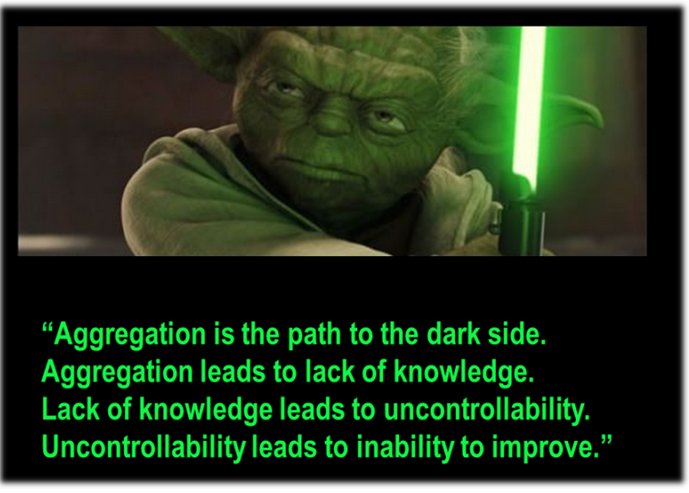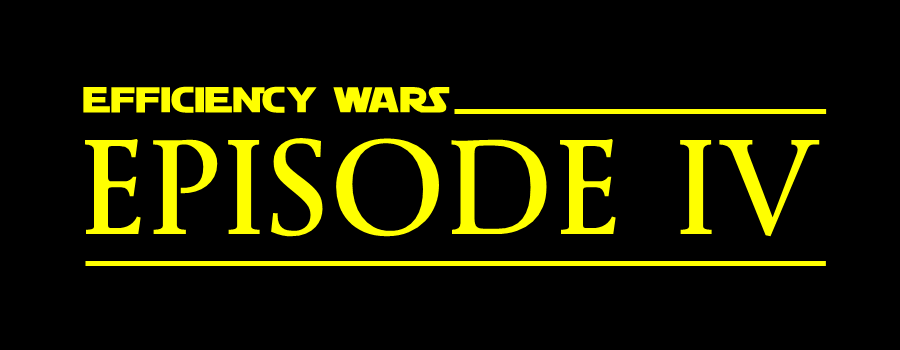Disaggregation of consumptions? Why? To avoid the dark side
Within the world of management, the aphorism “If you can’t measure it, you can’t improve it” is often attributed to the twentieth century Austrian philosopher, Peter Drucker, whose writings contributed to the philosophical and practical foundations of the modern business corporation. He is indeed considered the founder of modern management.
Anyone with a minimum knowledge of quality control will have heard of the “Deming Cycle” also known as the “Plan-Do-Check-Act management method”. Measurement is essential in management. It is part of the administrative process and it is essential in the application of the PDCA method.
However, physicists know the expression does not come from the field of corporate management but from experimental thermodynamics. In particular, it was the nineteenth century British mathematician and physicist William Thomson Kelvin (Lord Kelvin) who formulated it in the following terms: “What is not defined, cannot be measured. What is not measured cannot be improved. What is not improving, always breaks down.” By the way, William Thomson Kelvin became Lord Kelvin-Britain’s first British scientist to be admitted to the House of Lords,-in recognition of his work in thermodynamics and electricity. He is buried in Westminster Abbey, next to the tomb of Isaac Newton.
Once defended the honour of “physics” versus “management”, the idea of measuring for improvement remains one of the most important ground rules of green manufacturing.
One of the problems encountered in the REEMAIN project when initiating the process of improving the energy efficiency of the production processes is the aggregation of energy consumptions: the individual energy consumptions of the main machines or stages of the production process are not accurately known. Only the global amount of energy consumed by the factory as a whole is known.
In the best case scenario, the total amount of energy consumptions of the different workshops will be available in terms of monthly values in large factories constructively organized in interconnected workshops. This is because, –in those kinds of factories-, the specific electricity and gas meters, and even thermal energy or compressed air meters, will have been installed, in the connection points of the workshops to the energy distribution factory networks. However, this “effort” (i.e. economic investment) in terms of energy meters has nothing to do with energy efficiency concerns. It is devoted to avoid discussions in the allocation of overhead costs for energy supplies and auxiliary services between the different workshops or departments.

Overhead costs must always be distributed, and given that financially the factory (or company) is a closed system, the different departments or workshops will try to use a criterion that benefits them –obviously at the expense of hurting others. For instance, electricity or natural gas costs are often split between different departments depending on the number of workers, the workshop area, the amount of produced units, the number of working hours, nominal power of the machineries or even some type of weighted mix of all the above parameters. As you can imagine, if total energy costs reach magnitudes of six zeroes, changing the weighting of the different criteria can represent hundreds of thousands of euros in the corresponding economic balances.
In any case, either within the workshop or at the global factory level, the challenge is to determine (i.e. monitor with temporal detailed recording) the contributions of the different lines, machines or systems to the energy consumption of the factory. And, why is this useful? Well, there are many reasons that will be discussed in the post. But, talking in general terms and paraphrasing Master Yoda, –now it is 40 years celebration, it could be said that “Aggregation of energy consumptions is the path to the dark side. Aggregation leads to lack of knowledge. Lack of knowledge leads to uncontrollability. Uncontrollability leads to inability to improve.”
To be continued…
- Efficiency Wars (Episode VI) – The Return of Bohr - 25 July 2017
- Efficiency Wars (Episode V) – The ROI strikes back - 20 June 2017
- Efficiency Wars (Episode IV) – A new (efficiency) hope - 25 May 2017
